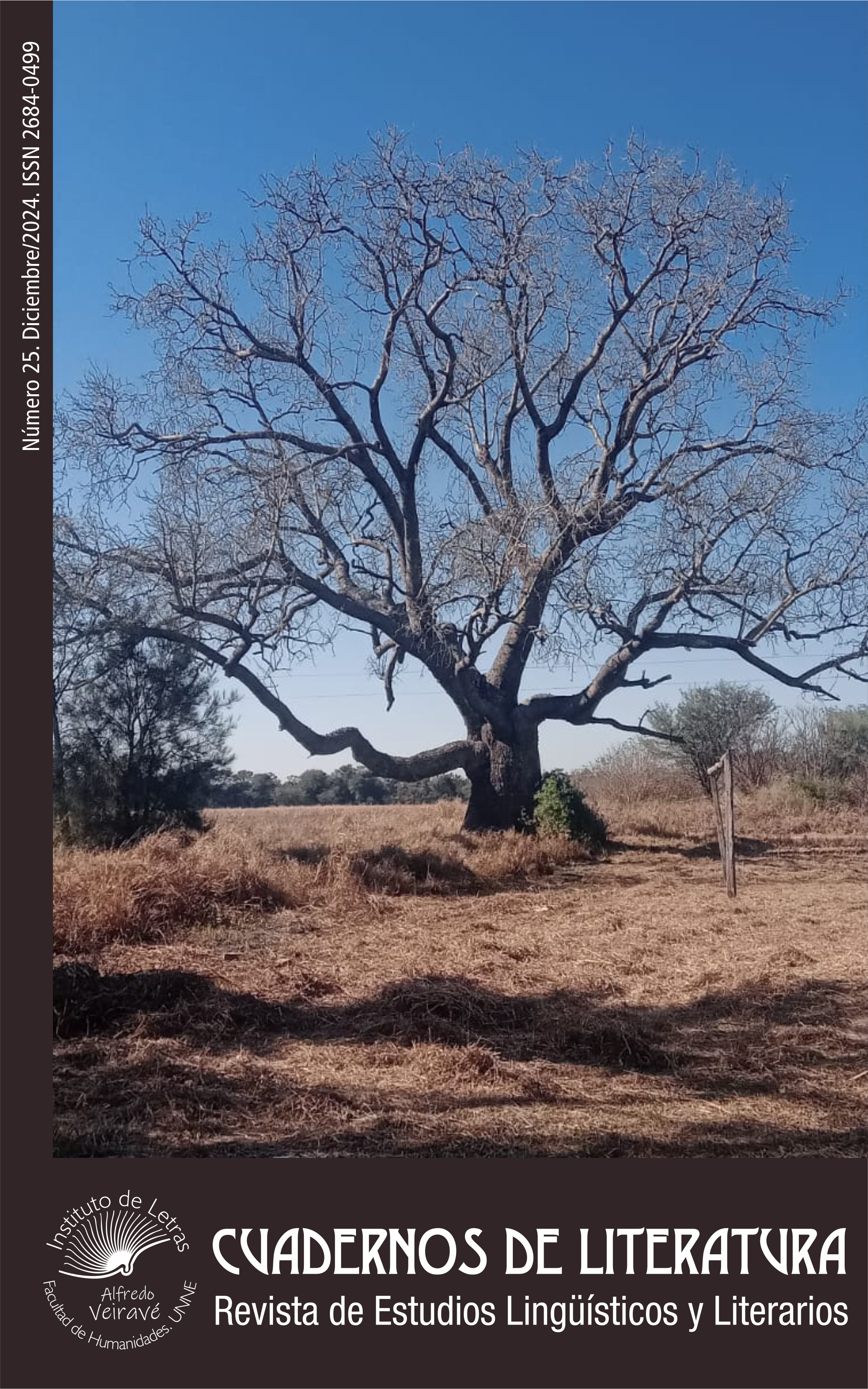Disdain for Amor habendi in Aeneid 8: Aeneas in Times of Evander
DOI:
https://doi.org/10.30972/clt.258012Keywords:
Evander, Aeneid, humbleness, Pallanteum, Golden AgeAbstract
In Aeneid 8, Aeneas visits Pallanteum to ask Evander for help in the war. However, before receiving Evander’s help, Aeneas will have to participate in a Herculean ritual and listen to the king’s recounting of the region’s history, in which both his actions and his kingdom embody poverty as a virtue –standing in opposition to amor habendi, the cause of the Golden Age’s decline, as well as to Oriental luxury. The aim of my paper is to analyze the episodes in which Evander or his kingdom are characterized as humble or poor in this Book. I argue that Evander promotes a vision of the Golden Age rooted in austerity and self-sufficiency, in contrast to the greed and excess depicted in other episodes of the Georgics and the Aeneid.
References
Allen, Archibald. (2010). Virgil’s Acquisitive Bees. The Classical Quarterly, 60(1), 258-261. https://doi.org/10.1017/S0009838809990620
Bacon, J. R. (1939). Aeneas in Wonderland. A Study of Aeneid VIII. The Classical Review, 53(3), 97-104. https://doi.org/10.1017/S0009840X00083529
Bender, Henry. (2001). De Habitu Vestis: Clothing in the Aeneid. En Sebesta, Judith Lynn y Bonfante, Larissa (eds.), The World of Roman Costume (pp. 146-152). Madison, University of Wisconsin Press.
Bendlin, Andreas. (2013). The Urban Sacred Landscape. En Erdkamp, Paul (ed.), The Cambridge Companion to Ancient Rome (pp. 461-477). Cambridge, Cambridge University Press.
Cancik, Hubert. (1985-1986). Rome as Sacred Landscape. Varro and the End of Republican Religion in Rome. En Kippenberg, Hans Gerhard, et al. (eds.), Visible Religion. Vol. IV-V: Approaches to Iconology (pp. 250-265). Leiden, Brill.
Duke, E. A., Hicken, W. F., Nicoll, W. S. M., Robinson, D. B. y Strachan, J. C. G. (1995). Platonis Opera. Tomus I. Tetralogias I-II Continens. Insunt Euthyphro, Apologia, Crito, Phaedo, Cratylus, Theaetetus, Sophista, Politicus. Oxford, Oxford University Press.
Eden, Paul (ed.). (1975). A Commentary on Virgil: Aeneid VIII. Leiden, Brill.
Fordyce, Christian James (ed.). (1977). P. Vergili Maronis Aeneidos Libri VII-VIII with a Commentary. Oxford, Oxford University Press.
Fratantuono, Lee y Alden Smith, R. (eds.). (2018). Virgil, Aeneid 8. Text, Translation, and Commentary. Leiden, Brill.
Freudenburg, Kirk. (2017). Romans Prefigured: the Status Protocols of Evander’s Palatine. SIFC, 15(2), 215-231.
Galinsky, Karl. (1996). Augustan Culture. An Interpretive Introduction. Princeton, Princeton University Press.
Glare, P. G. W. (ed.). (1968). Oxford Latin Dictionary. Oxford, Oxford University Press.
Gransden, Karl Watts (ed.). (1976). Virgil Aeneid Book VIII. Cambridge, Cambridge University Press.
Grimozzi, Chiara. (2022). La edad de oro en Virgilio y Ovidio (Églogas, Geórgicas, Eneida y Metamorfosis) [Tesis de licenciatura]. Universidad Nacional de La Plata, Facultad de Humanidades y Ciencias de la Educación. Memoria Académica. https://acortar.link/8LehAp
Grimozzi, Chiara. (2023). Contentus vivere parvo. Tiempos de vida sencilla en la elegía I, 1 de Tibulo. Auster, (28), e083. https://doi.org/10.24215/23468890e083
Gruen, Erich. (2006). Romans and Others. En Rosenstein, Nathan y Morstein-Marx, Robert (eds.), A Companion to the Roman Republic (pp. 459-477). United Kingdom, Wiley-Blackwell.
Horsfall, Nicholas. (1971). Numanus Remulus: Ethnography and Propaganda in “Aen”., ix, 598 f. Latomus, 30 (4), 1108–1116. https://acortar.link/Qq1fc3
Jenkyns, Richard. (1998). A Trojan in Italy: Evander’s Kingdom. En Virgil’s Experience. Nature and History: Times, Names, and Places (pp. 515-563). Oxford, Oxford University Press.
Jenkyns, Richard. (2014). The Memory of Rome in Rome. En Galinsky, Karl (ed.), Memoria Romana. Memory in Rome and Rome in Memory (pp. 15-26). Ann Arbor, The University of Michigan Press.
Martínez Astorino, Pablo. (2020). Pobreza, comunidad política e historia en Horacio: itinerario desde la lírica individual a la lírica civil. Iter, 26, 109-126. https://acortar.link/aQdbFH
Marinčič, Marko. (2002). Roman Archaeology in Vergil’s Arcadia (Vergil Eclogue 4; Aeneid 8; Livy 1.7). En Levene, David y Nelis, Damien (eds.), Clio & the Poets. Augustan Poetry & the Traditions of Ancient Historiography (pp. 143-161). Leiden, Brill.
Morley, Neville. (2006). The Poor in the City of Rome. En Atkins, Margart y Osborne, Robin (eds.), Poverty in the Roman World (pp. 21-39). Cambridge, Cambridge University Press.
Mynors, Roger (ed.). (1969). P. Vergili Maronis Opera. Oxford, Oxford University Press.
Mynors, Roger (ed.). ([1969] 1990). Virgil Georgics. Oxford, Clarendon Press.
Nelsestuen, Grant. (2016). Numanus Remulus, Ascanius, and Cato’s Origines: The Rhetoric of Ethnicity in Aeneid 9. Vergilius (1959-), 62, 79–97. https://acortar.link/c5M7QV
O’Hara, James (ed.). (2018). Aeneid Book 8. Focus Vergil Aeneid Commentary. Indianapolis, Focus.
Otis, Brooks. ([1964] 1995). VII: The Iliadic Aeneid. En Virgil. A Study in Civilized Poetry (pp. 313-382). Oklahoma, University of Oklahoma Press.
Papaioannou, Sophia. (2003). Founder, Civilizer and Leader: Vergil’s Evander and his Role in the Origins of Rome. Mnemosyne, 56(6), 680-702. https://doi.org/10.1163/156852503772914131
Pauly, Adolph Frederick; Wissowa, Georg; Kroll, Wilhelm; y Mittelhaus, Karl. (1932). Paulys Realencyclopädie der classischen Altertumswissenschaft: neue Bearbeitung, Bd.4A 2 : Symposion - Tauris: Bd IV A, Hbd IV A,2. Stuttgart, Metzler.
Quint, David. (2018). Culture and Nature in Book 8. En Virgil’s Double Cross. Design and Meaning in the Aeneid (pp. 114-149). Princeton, Princeton University Press.
Rees, Roger. (1996). Revisiting Evander at Aeneid 8.363. The Classical Quarterly, 46(2), 583-586. https://doi.org/10.1093/cq/46.2.583
Williams, Robert Deryck (ed.). ([1973] 1992). The Aeneid of Virgil. Books 7-12. London, St. Martin’s Press.
Woolf, Greg. (2006). Writing Poverty in Rome. En Atkins, Margaret y Osborne, Robin (eds.), Poverty in the Roman World (pp. 83-99). Cambridge, Cambridge University Press.









52.jpg)









